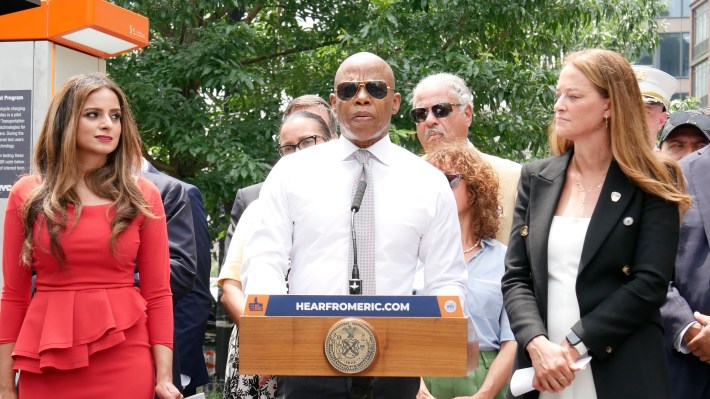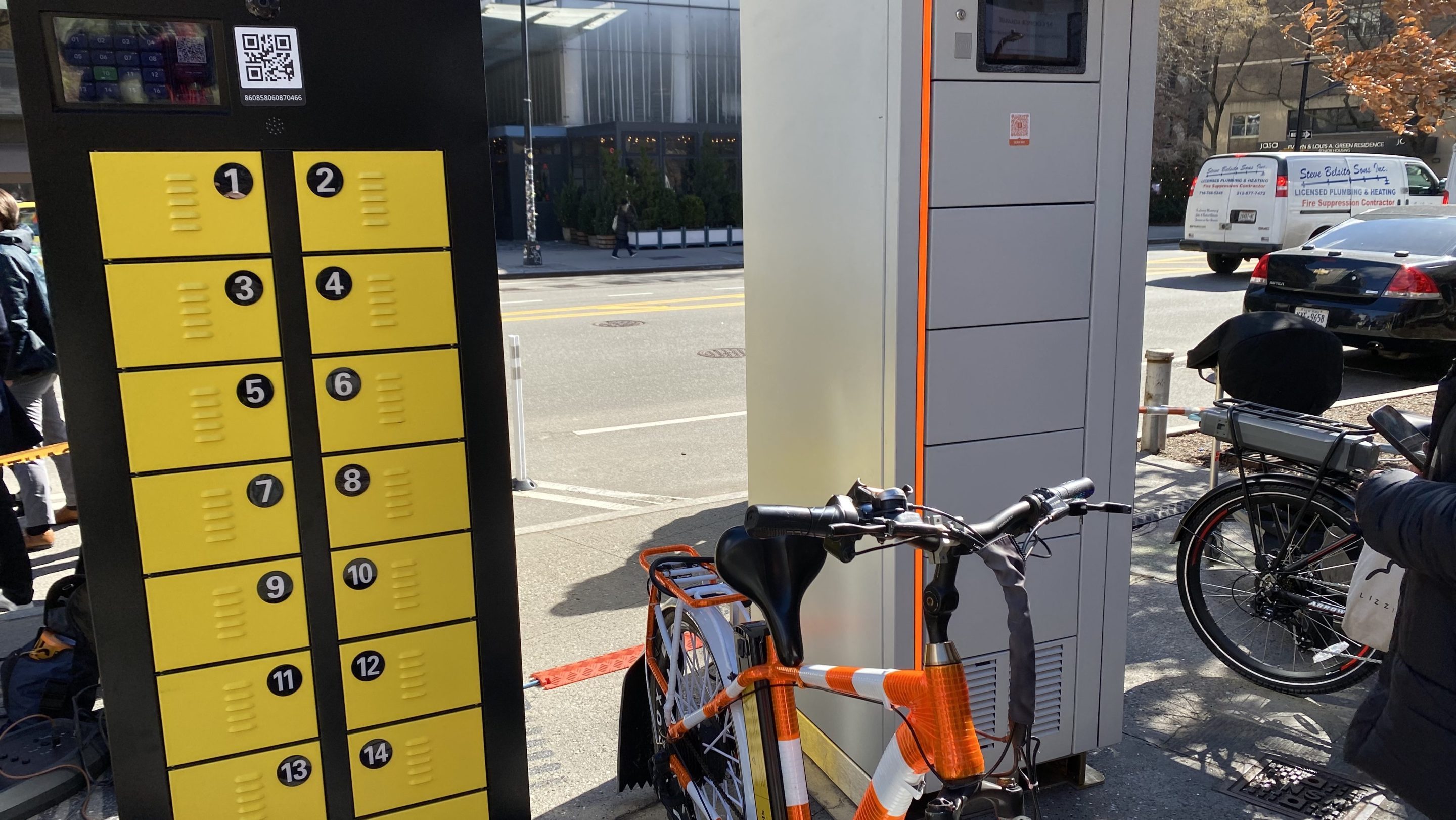Critics are questioning a city proposal to allow some building owners to use their sidewalks for e-bike battery charging stations, saying that the EV fueling stations should be in the street, not in already-cluttered public space.
At a rules hearing on Monday, commentators said the Department of Transportation should revise its plan and allow building owners to put charging stations in the roadway instead of on sidewalks, where pedestrians are already squeezed. And others said that the proposed rule — which only covers residential buildings with commercial storefronts — should be expanded to allow all residential buildings to participate.
“Placing charging cabinets in the curb lane with designated parking spaces for e-bikes while they await charging would organize the chaos and get essential charging infrastructure out of the pedestrian realm,” the livable streets group Open Plans testified in a statement. (The group shares a parent organization with Streetsblog.)
The hearing comes a month after the mayor, along with the DOT and the FDNY, announced the initiative to allow building owners to install and operate e-bike battery charging stations on the sidewalks in front of their properties in the public right of way. It's an initiative that the city hopes will mitigate the fire risks associated with the lithium-ion batteries that are often used in e-bikes and electric mopeds.
“The proposed rules would encourage the safe use of electric micromobility devices in order to address this urgent fire threat, as store owners, building owners, and battery swapping and charging cabinet providers are unable under existing rules to install these cabinets in the right of way,” reads the proposal.

But some advocates say the city’s attempt to mitigate fires need not come at the expense of valuable pedestrian space. Indeed, the city has already begun using the curb lane as charging stations for electric cars, although the chargers themselves sit on the sidewalks while cars using the chargers park on the curb.
This approach has its own set of issues: Livable street advocates argue that installing these types of charging stations solidifies the curb’s use as a space for free storage of parked cars.
But using the curb-side lane for e-bike charging hubs would do the opposite, repurposing car storage space for micromobility, moving the city closer to its climate goals.
“The city’s own strategic documents, from the Streets Plan to the recent vision for the Cross Bronx Expressway, call for increased accessibility, better public space, smart curb management, and even specifically the placement of crucial transportation infrastructure in the curb lane,” Open Plans’s statement said. "By putting e-bike charging stations on the sidewalk, the city would be contradicting its own vision for our streets and sidewalks."
The rule is meant to further mitigate the dangers of battery fires, it will only allow buildings with commercial or manufacturing on the first floor to install the charging hubs — a missed opportunity for many residential landlords who rent to low-income workers who utilize these e-bike.
“As currently designed, this program would not have prevented the deadly fires that occurred in our members’ buildings,” said Adam Roberts, policy director for the Community Housing Improvement Program, which represents the city’s rent-stabilized landlords. “Tenants and workers in rent-stabilized buildings without commercial space would see little benefit from this program, putting them at continued risk from e-bike fires.”
Two companies that operate charging stations, JOCO and Pop Wheels, also urged the department to include residential-only buildings in the program. Pop Wheels, which already operates one of the battery-swapping stations currently located in Cooper Square in the East Village, said it has already heard from potential partners who want to participate in the program but can't.
“Many partners who are doing low-income housing are interested in putting charging in front of their units as well,” said company co-founder David Hammer.
Details have not been released outlining if there will be a community approval process for the new sidewalk charging stations. Since 2022, when the mayor announced a $1-million federal grant to start a charging hubs pilot for deliveristas, the program has been in limbo due to backlash from community boards, which, among other things, say they don't like the idea of workers congregating on the sidewalks.
In a statement, DOT spokesman Vin Barone said the agency is "considering the comments we received" and that "each battery swapping and charging cabinet would need to meet our requirements to maintain clear pedestrian paths.”






